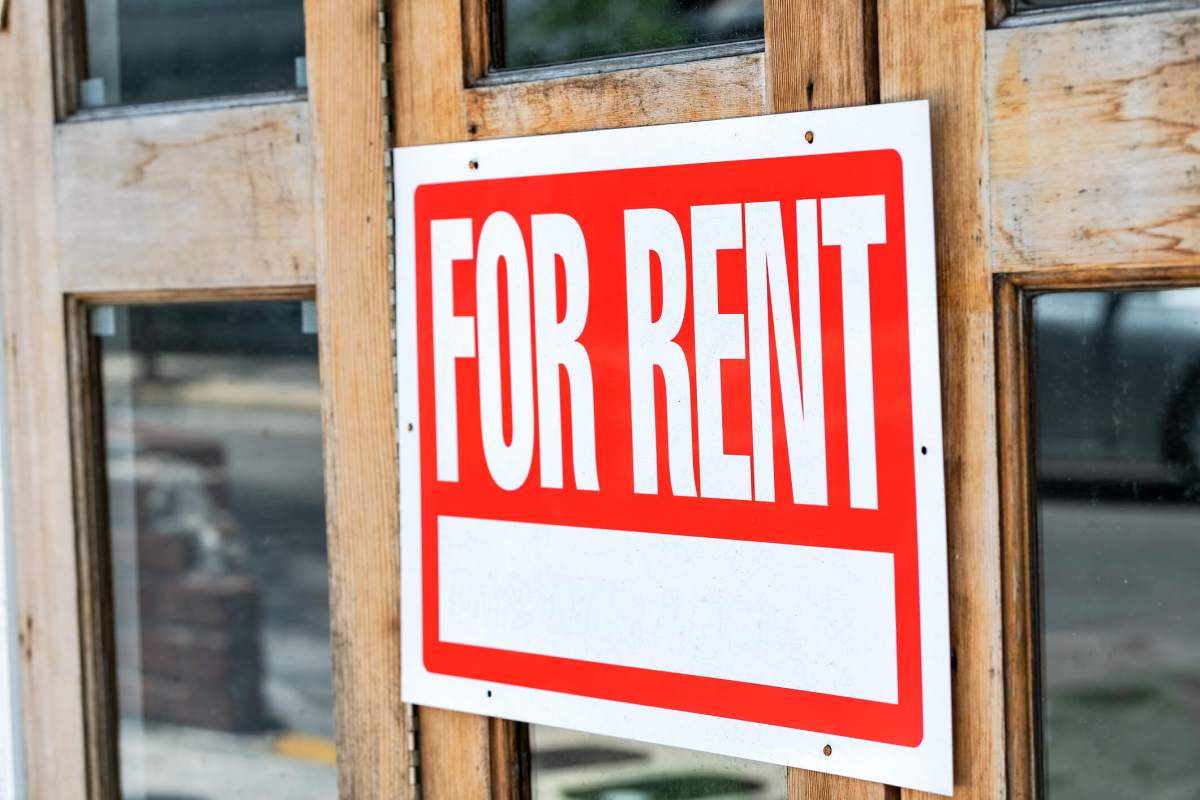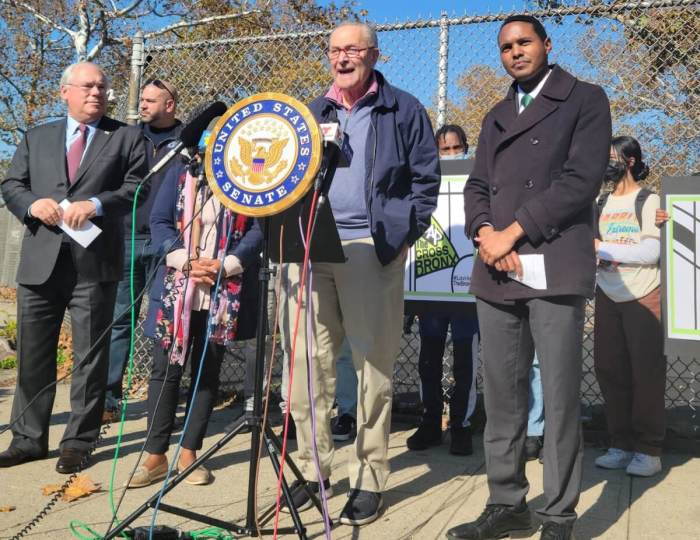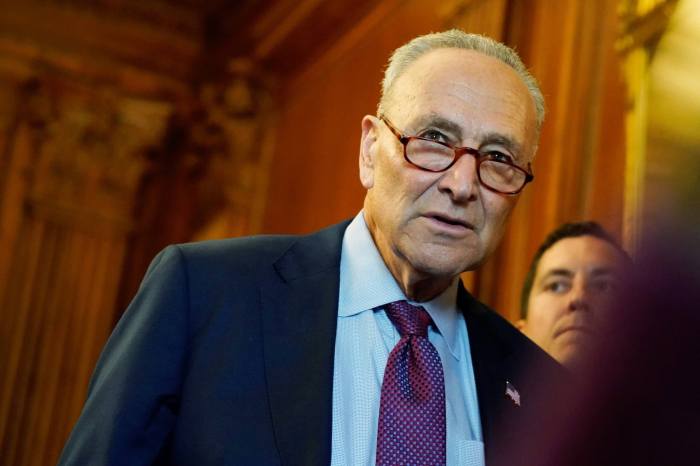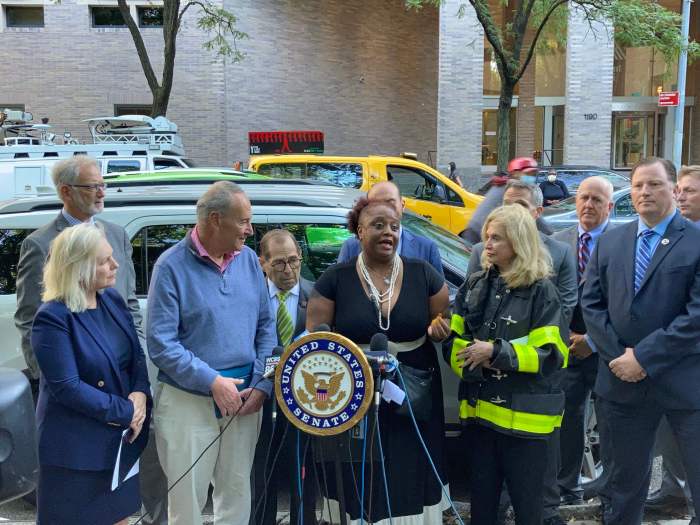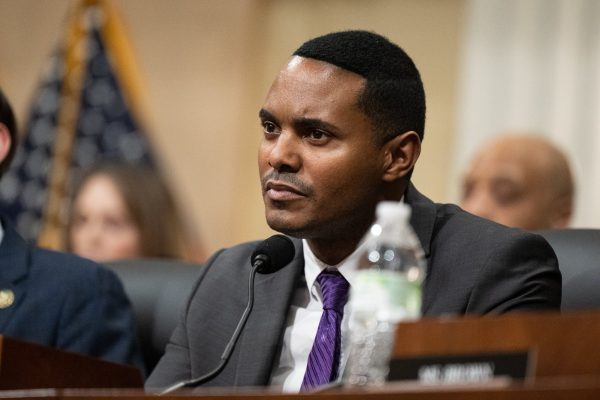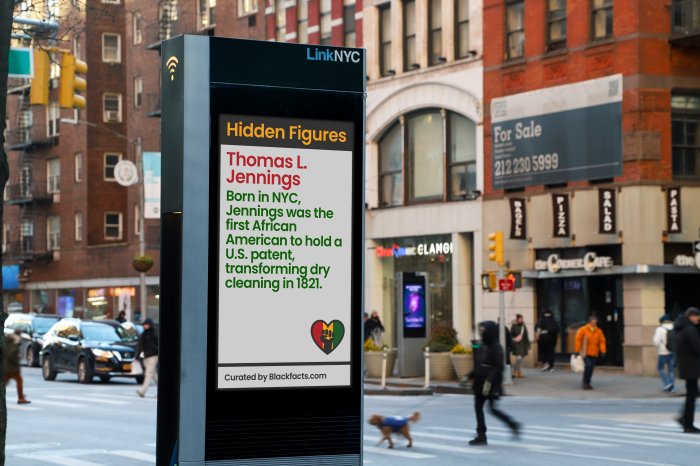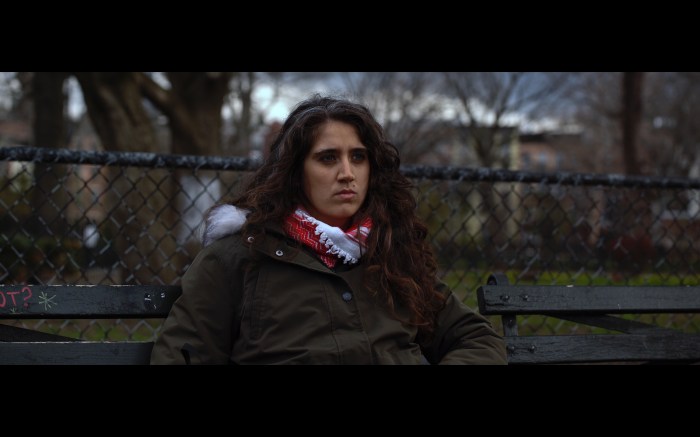A coalition of New York’s real estate organizations are calling on the state’s senators and Congress delegates to get more aid for the state’s rental market.
In a letter addressed to Senator Chuck Schumer, Senator Kirsten Gillibrand and Members of New York’s Congressional Delegation, twelve New York real estate organizations are asking for $2 billion in funding for rent relief not just for renters, but for the state’s rental property owners who are struggling to pay expenses because of rent not being paid.
“Over these past two years, what we’ve seen is a roller coaster. Folks mostly in Manhattan have been in and out, but in the rent-stabilized units we represent in the Bronx, Brooklyn and Queens, what we saw was up to 18% of renters who couldn’t pay rent. That led to cascading effect of property owners who couldn’t pay bills, with debt carrying now for several months,” said Jay Martin, Executive Director of Community Housing Improvement Program (CHIP).
“It’s unlike anything I have ever seen. There’s an overwhelming need on the tenant side, but I’ve never seen owners as in trouble monetarily and emotionally due to the taxing nature of pandemic and will to maintain continuance of operations while not getting rents in two years,” said Jaime Michelle Cain, legal counsel for the Coalition of Western NY Property Owners.
In the letter, the signers acknowledge that the NYS Emergency Rental Assistance Program (ERAP) is still the “best, fiscally sound economic policy as it sends targeted assistance directly to those adversely impacted by the pandemic,” however with the number of applicants, the program has exceeded the amount of funding it can provide. This has become especially concerning to due COVID-19 spikes resulting from the new variants, the letter states, as New York was the “first in the nation to experience the brunt of the virus and – as the state with the most renters in the country – had an early economic strain on our housing markets at a scale unimaginable in most other states.”
“The perception is that [New York] is doing better, in our experience, what happened is New Yorkers who live and work in the city, those that are middle class to lower-income and rent-stabilized didn’t move out and didn’t vacate. They stayed in their apartment, look for better deals, suffered from job loss during the early part of the pandemic,” said Martin. “The headlines would tell you everyone and their grandmothers moved back into the city, rents are back where they are, but the majority of housing we represent saw 18% unable to pay rents and the program put in place ran out of money in three and a half months. There are billions in rent debt sitting there.”
Another struggle tenants and property owners face is the courts opened back up. Because there is no funding left in ERAP, those who apply now have to wait until April to even have a case be heard, and debts continue to climb.
With no rent moratorium in place, the question around eviction comes back to the surface for renters and property owners alike. The main reason for evictions are for nonpayment reasons, and property owners don’t necessarily want to evict these tenants that are unable to pay rent due to COVID-19.
“There are still two statutory logs on the books to protect tenants, first with the ERAP program where the newly filed will get the benefits for an unknown duration of time. However, anyone who just filed for ERAP last week get the benefit of staying out of court for now because judges are moving that to April due to how deep the calendar is,” said Cain. “We don’t want to evict, eviction is the last goal, but here there has been an elongating period of time where rent isn’t paid.”
“The easiest solution is using ERAP to help property owners pay down those debts, that’s what will stop nonpayment evictions in the city,” said Martin. “We’re kicking the can down the road. Debts have been accumulating. Renters that have rents that are $1,400-1,500 are looking at debts of $20,000, which would take years to pay back. The property owner doesn’t want to evict.”
Regardless, with additional funding to aid the rental market, the signers of the letter agree that it is in everybody’s best interest that the aid come soon.
“It doesn’t matter where you are in New York. We need them to amend the program through ERAP or a state-run program to allow tenants to get the aid they need and not turn it off,” said Cain. “It serves no one to stop funding and the real estate industry needs to come together and not polarized by renters or landlords.”
“If rent money doesn’t come before those bills come do, it will be bad for renters in the short-run and bad for owners in the long run,” said Martin. “It makes sense to get funding in place to immediately clear up the issue. We can prevent evictions from happening.”
Click here to read the full letter.



